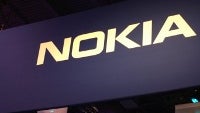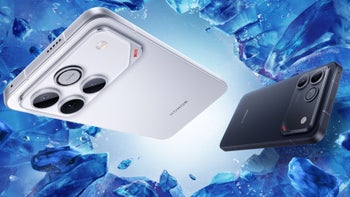Nokia's phone business earns it $1.16 billion in 2011, sells "well over" a million Lumia handsets

Nokia just released its financials for the last quarter of 2011 and for the whole year, and it ended up with about $1.4 billion loss.
That was actually not due to its phones business, which made $1.16 billion for the company, but from its Location & Commerce department (think NAVTEQ), and the Nokia Siemens Networks joint venture, which it has been looking to pawn off to the highest bidder in vain.
The company sold over a million Nokia Lumia 800 and 710 handsets, said the CEO Stephen Elop, which is in line with the latest analyst expectations:
Sales of Symbian smartphones and entry level handsets, while better in Q4 than in Q3, did not fare well overall, as was largely expected after the U-turn in strategy and the new direction with Windows Phone announced February last year. "In certain markets, there has been an acceleration of the anticipated trend towards lower-priced smartphones with specifications that aredifferent from Symbian’s traditional strengths. As a result of the changing market conditions, combined with our increased focus on Lumia, we now believe that we will sell fewer Symbian devices than we previously anticipated", comments Stephen Elop.
For the first quarter of 2012, Nokia expects to break even, plus/minus 2%, and has big plans for its newly created Location & Commerce division. While still operating at a loss, Nokia thinks it is well-positioned to provide location-based services for a fee to Windows Phones and various other mobile devices, capitalizing on the strength of NAVTEQ's mapping software. As far as Nokia Siemens Networks go, the company refrained from providing guidance, meaning that it will probably be the albatross on profits for a while. The company also didn't provide details about sales of its Nokia N9 MeeGo-based smartphone.
Nokia sold 113.5 million phones in Q4, of which 19.6 million were smartphones. That's 17% more smartphones than in Q3, which Nokia attributes to the broader availability of the Nokia N9, and the newly-released Lumia 800 and 710 handsets, as well as the usual holiday rush. The company ended up the year with about $7.4 billion in cash, which is a nice buffer until the Lumia handsets effect fully kicks in later this year.
The company also received $250 million in platform support from Microsoft.
source: Nokia (PDF)
That was actually not due to its phones business, which made $1.16 billion for the company, but from its Location & Commerce department (think NAVTEQ), and the Nokia Siemens Networks joint venture, which it has been looking to pawn off to the highest bidder in vain.
In the war of ecosystems, clearly there are some strong contenders already on the field. And with Lumia, we have demonstrated that we belong on the field. Our specific intent has been to establish a beachhead in this war of ecosystems, and country by country that is what we are now accomplishing. To date we have sold well over 1 million Lumia devices. From this beachhead of more than 1 million Lumia devices, you will see us push forward with the sales, marketing and successive product introductions necessary to be successful. We also plan to bring the Lumia series to additional markets including China and Latin America in the first half of 2012.
Sales of Symbian smartphones and entry level handsets, while better in Q4 than in Q3, did not fare well overall, as was largely expected after the U-turn in strategy and the new direction with Windows Phone announced February last year. "In certain markets, there has been an acceleration of the anticipated trend towards lower-priced smartphones with specifications that aredifferent from Symbian’s traditional strengths. As a result of the changing market conditions, combined with our increased focus on Lumia, we now believe that we will sell fewer Symbian devices than we previously anticipated", comments Stephen Elop.
The company also received $250 million in platform support from Microsoft.
source: Nokia (PDF)
Follow us on Google News












Things that are NOT allowed:
To help keep our community safe and free from spam, we apply temporary limits to newly created accounts: